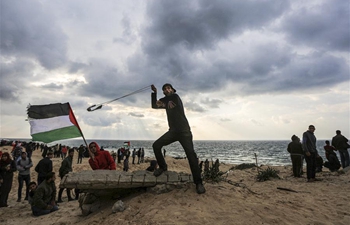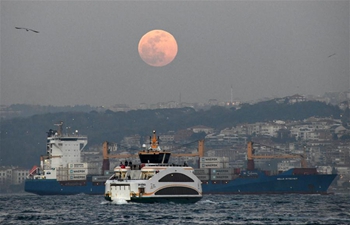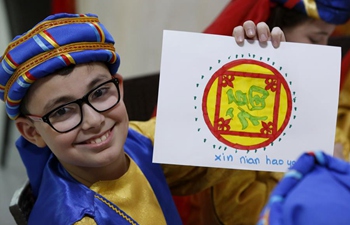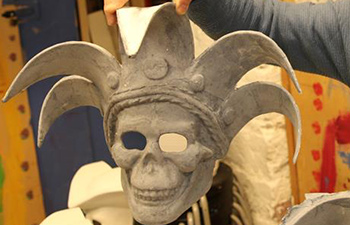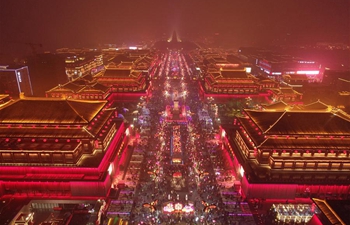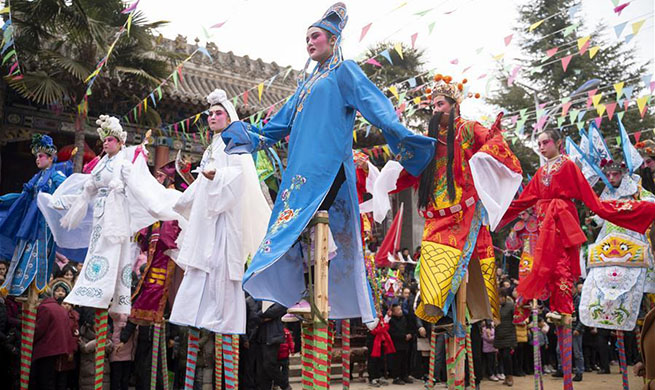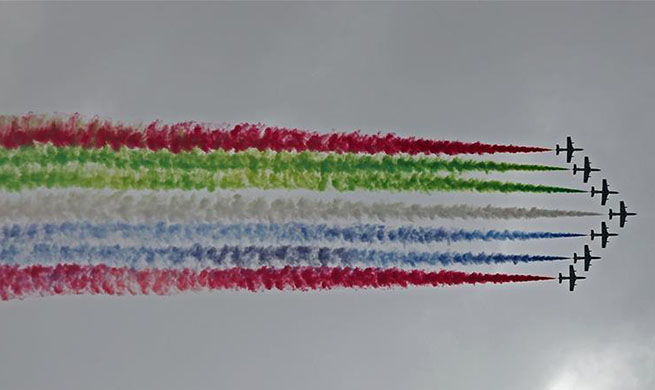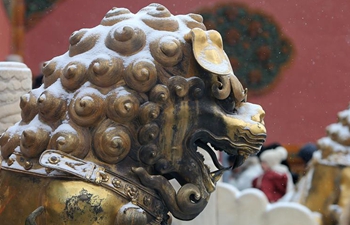by Denis Elamu
JUBA, Feb. 20 (Xinhua) -- The warring parties in South Sudan should hasten implementation of a peace agreement signed late 2018 in order to secure financial support from the international community, experts told Xinhua on Wednesday.
Augustino Ting Mayai, a policy analyst with the Sudd Institute, a Juba-based think-tank, told Xinhua there were limited funds in the state coffers to facilitate implementation of the peace deal hence the need to seek external support.
"We are getting some money from oil revenue but this is not seen in terms of government spending. As we know there has been only 400,000 U.S. dollars available for funding peace," said Mayai.
He said that the government's failure to allocate enough funds to support peace deal's implementation could be interpreted as lack of commitment by the international community.
Michael Makuei Lueth, information minister, disclosed last week that the government is looking for over 44 billion pounds (285 million U.S. dollars) in order to implement the peace agreement.
Makuei revealed the state will be taxing civil servants' salaries for over a four-month period to mobilize cash to expedite the peace process as the pre-transitional period ends in May this year.
The international community has nevertheless adopted a "wait and see" strategy, having seen the 2015 peace agreement collapse during the renewed violence in July 2016.
The collapse of the previous peace agreement has made the United States, Britain and Norway under the Troika grouping become wary of funding the revitalized peace agreement signed in September 2018 between President Salva Kiir and Riek Machar who is leader of the Sudan People's Liberation Movement/Army-in opposition (SPLM/A-IO) in Addis Ababa, the Ethiopian capital.
Besides funding, the government and SPLM-IO have disagreed over the draft constitution which is currently awaiting parliament approval.
The SPLM-IO said the proposed constitution in its current form defeats the spirit of the revitalized peace agreement as it ignores the implementation of the federal system in favor of centralized power structure.
Nathaniel Oyet, representative of SPLM/A-IO on the National Constitutional Amendment Committee (NCAC), said the draft constitution violates the peace agreement, since paragraph five in the preamble of the peace agreement calls for federal system as the preferred choice for the people of South Sudan.
"We do not accept the procedure being used by the chairman of National Pre-Transitional Committee (NPTC). We raised this issue with IGAD and the guarantors of the peace agreement," said Oyet, adding that they are waiting feedback from peace guarantors on the contentious issue.
However, information minister Makuei said the opposition's disgruntlement over the draft constitution was unnecessary, since the document has backing from the regional peace mediators, the Intergovernmental Authority on Development (IGAD).
"These people are just trying to create unnecessary (demands) things. IGAD has already endorsed the draft constitution," said Makuei.
There are currently more than 400 peace delegates from both the government and opposition being accommodated in hotels in the capital.
Makuei revealed that they are persuading Thomas Cirilo, the leader of the National Salvation Front (NAS) whose group despite having signed the ceasefire agreement continues to fight government and SPLA-IO forces in Yei River and Amadi states in Central Equatoria region, to join the peace process.
"Thomas Cirilo is causing a lot of havoc in the Yei River State, but we have people talking to him to come and join the peace process," said Makuei.
James Okuk, political science lecturer at University of Juba, said that the real work has not been done despite formation of the various committees in place.
"A lot has been done especially on provisions in chapter 1 of the peace agreement. The real work that is needed is not yet there apart from formation of committees," said Okuk.
He disclosed that the key important things that are yet to be worked on include the cantonment of forces, identifying the number of states, demarcation of the borders of the states.
Okuk added that the Cessation of Hostilities (CoH) is being violated in Yei River state forcing some estimated 5,000 people to seek refuge in DR Congo, hence creating doubts on the current peace agreement.
He said NAS under Cirilo are left with no choice but to join the peace deal as regional and international pressure intensifies on them.
"They (NAS) are left with no choice but to join the peace process, because I don't know which objective they want to achieve. Even if they fight now or tomorrow I don't see them achieving their objectives," said Okuk.
He also said the Disarmament Demobilization Commission has not been set up. "If you go to the countryside, everybody is still holding guns and that's a big problem," said Okuk.
He added that more work is needed from the parties to move forward the peace agreement.
"Coming here to visit is fine but the real work that is supposed to be done by technocrats is not being done. What we are seeing are high-level meetings. Beyond that it's difficult to get the bigger picture of what is happening." said Okuk.
